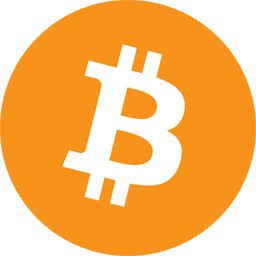

His email address was from a free German service. Google searches for his name turned up no accurate guidance; it was truly a pseudonym. But while Nakamoto himself may have been a puzzle, his creation cracked a difficulty that had stumped cryptographers for a few years. The idea of electronic money—handy and untraceable, liberated from the oversight of governments and banks—were a hot topic since the birth of the Internet. Cypherpunks, the 1990s flow into of libertarian cryptographers, dedicated themselves to the undertaking. Yet every effort to create digital cash had foundered. Ecash, an nameless system launched in the early 1990s by cryptographer David Chaum, failed partly because it relied on the latest infrastructures of executive and bank card organizations. Other proposals observed—bit gold, RPOW, b money—but none got off the bottom. One of the core challenges of designing a digital overseas money comprises anything else called the double spending hassle. If a electronic dollar is just suggestions, free from the corporeal strictures of paper and metal, what's to avoid people from copying and pasting it as easily as a bit of text, "spending" it as repeatedly as they need?The commonplace answer worried using a vital clearinghouse to maintain a real time ledger of all transactions—making certain that, if an individual spends his last digital dollar, he can't then spend it again. The ledger prevents fraud, but it also requires a trusted third party to manage it.
In 2014, the price fell sharply, and as of April remained depressed at little more than half 2013 prices.
Who owns bitcoins?Bitcoin is not owned by a rustic, group, or person.
The computing device programs that win are presented a slice of 12. 5 new bitcoins. That number halves every four years; it was 25 after we got our miner. Usually, the fastest computer programs in the community solve the issues first. WIRED's miner pretty much won the Bitcoin math lottery a couple of times, enabling it to generate a bit over 13 coins into the community. Then, the staff had to decide what to do with them. "We had a very long conversation, over a few weeks, about what to do with the cash," says Michael Calore, a senior editor at WIRED who has been at the magazine since 2006. Some staff contributors argued the Bitcoin may be donated, or put aside for a charitable aim sooner or later. Others said it had to be destroyed completely. What was agreed upon was that the cash shouldn't just sit there, as it could impact how the journal reported on cryptocurrencies. You can even lose bitcoins by working buggy code or making program errors, though these cases are more rare.
If an individual is capable of take over enough nodes that they might dictate their very own, fake, version of the blockchain, they could then counterfeit bitcoins or spend them varied times. Currently the biggest Bitcoin miner only has 15 % of the entire hashing power, but if this rose to 51 % it may be disastrous for the cryptocurrency. Those concerned about this risk might want to move to an choice international money. Bitcoin — it truly is what most people bring to mind once they hear the term blockchain. However, blockchain has morphed into an incredible know-how tool which can be utilized across industries in quite a lot of of capacities, adding in loan lending. Blockchain is a ledger system stored on a decentralized database which can consist of one or a couple of owners across many desktops or “nodes” linked in mixture. Records are linked in the form of time stamped blocks. It was initially applied in the generation utilized by bitcoin – the digital cash system. When the open source code for bitcoin was published in January 2009, the technology of blockchain was brought forth. First, as well as a more streamlined and era workflow, there may be a discount in the cost of using third party owners due to automation. Second, blockchain allows for transparency in the storage of data.